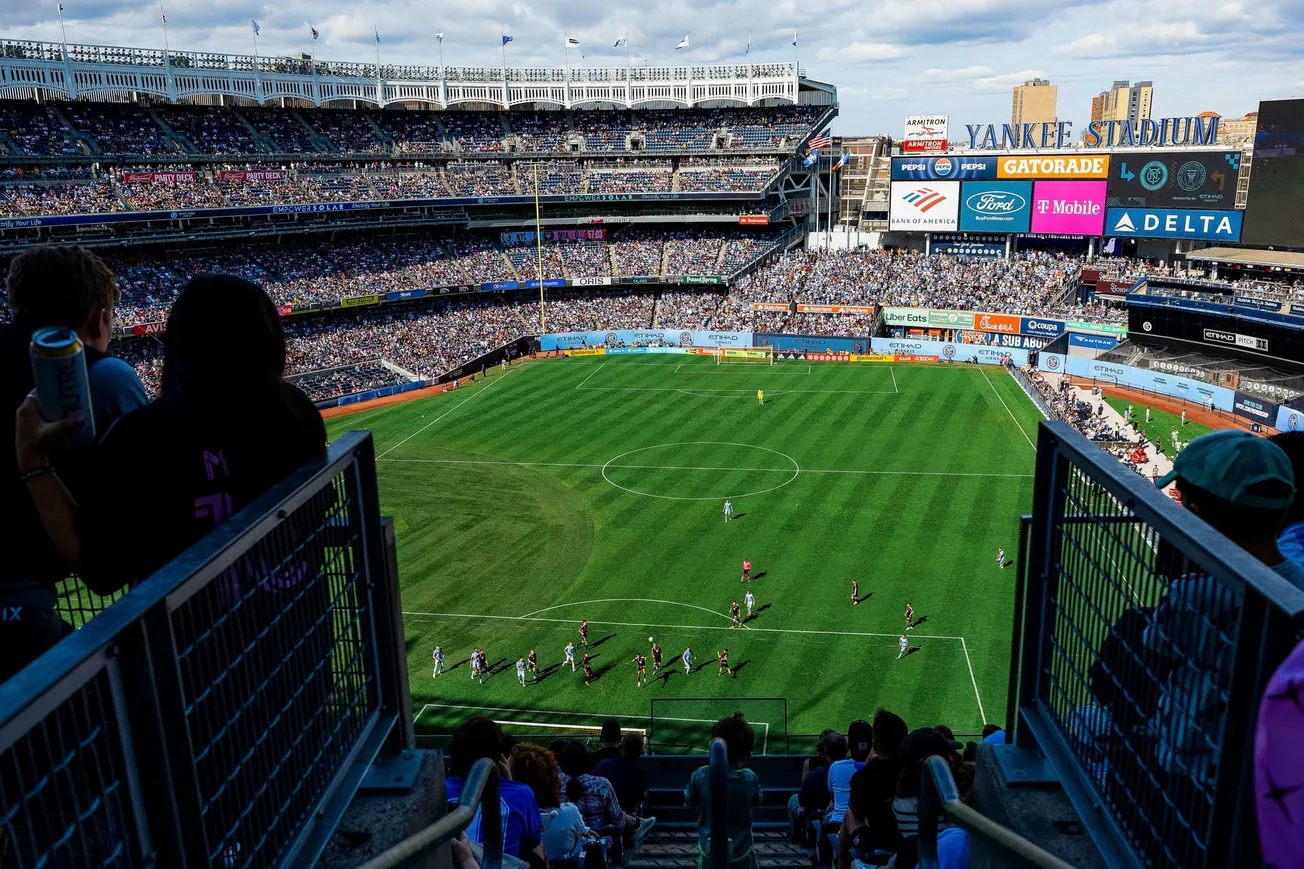Major League Soccer is really going to do it: The great MLS schedule and format shift is upon us.
After long flirting with the possibility, the MLS Board of Governors today voted in favor of drastically changing the MLS schedule and the league's competition format beginning in 2027.
From the summer of 2027 on, the league will follow a summer-to-spring schedule, with MLS regular seasons kicking off in mid-July and lasting through April, followed by the MLS Cup Playoffs in May. There will now also be a league-wide winter break from mid-December through January.
The Athletic first reported the pending Board of Governors vote and that these sweeping changes were imminent. MLS confirmed the calendar shift while saying discussions are still ongoing about potential changes to the format of the MLS Cup Playoffs, and while only broadly acknowledging that there will be a "new regular season format that blends elements of the global game with North American sports traditions."
According to that revelatory report from The Athletic, the new format will do away with the Eastern and Western Conferences and introduce a single MLS table, but with teams divided into five different geographic divisions that include six teams each. Every team would play its five division rivals twice per season, home and away for a total of 10 matches, then play all 24 other teams in MLS once, either home or away.
It wasn't certain the Board of Governors would really go through with this vote to so radically change how MLS operates. They had the option to vote to switch the calendar before, potentially to go into effect right after the 2026 FIFA World Cup that's taking place in the United States, Canada, and Mexico, but they kicked the proverbial can down the road and announced there'd be no change until 2027 at the earliest, but that they'd keep exploring the possibility.
Now the votes are cast and we've officially almost reached the end of the road for the version of MLS as we've known it. Let's briefly run through the big things to know about how and why the league is about to change and what it will all mean.
International alignment, playoff correction
Changing the calendar brings MLS into closer schedule alignment with the top European soccer leagues, and means player transfer business between MLS and Europe should, in theory, begin to get easier. There were league-wide complaints about MLS transfer windows operating outside the normal times international soccer transfers occur, and now that should no longer be an issue, as MLS will now be in its offseason in June and early July when most teams and players in Europe's top leagues are also in their offseason.
The calendar and transfer windows will align MLS with Europe, as will using a single league table and having each team face every other team in the league at least once. MLS is trumpeting the moves as being made so the league can better align itself with the best leagues in the world, and there are multiple ways the changes pull that off.
The schedule shift also helps the MLS Cup Playoffs escape the crowded fall portion of the American sports calendar, moving to a time in May when there's less competition for professional sports attention in the United States as the NBA and NHL regular seasons wind down and the MLB regular season just gets started. Moving the MLS playoffs to May also means the league will no longer need to take a two-week break in the middle of the playoffs to accommodate any FIFA international windows, like the momentum-killing one currently happening here in November.
14-match transition season?
Somewhat buried by the excitement of the massive changes on the horizon for MLS is the fact that the league will stage a 14-match mini-season in the early part of 2027 in order to create as smooth a transition as possible to the new summer-to-spring, single-table format.
MLS says the league will pack a 14-game regular season and playoffs into the months between February and May 2027, and that those results will determine 2027 qualification for the US Open Cup, Canadian Championship, Leagues Cup, and Concacaf Champions Cup.
Then the league will break for the month of June and early part of July before officially unveiling its new looks for the 2027-28 season.
Remaining uncertainties
MLS hasn't announced its final plans for how either the MLS Cup Playoffs or the league format will officially work come 2027-28 when the league flips to the new calendar. The setup with a single table, divisions, and a team facing all 29 other teams at least once in a season seems logical, but MLS also seems not yet ready to lay out the full blueprint for how it'll work.
The conventional wisdom points to New York City FC occupying a division with the Red Bulls, Philadelphia Union, New England Revolution, Toronto FC, and CF Montréal, given the existing league geography and the existing history between this group of teams. What incentives, if any, will there be for finishing atop your six-team division? How will the single table work as it pertains to playoff qualification? Some big questions to still answer.
Also unclear is how well this change will be received among the more cold-weather markets in MLS like Colorado, Salt Lake City, Minnesota, and the two Canadian clubs in Toronto and Montréal that don't play under a retractable roof.
Pains have been taken by some to point out that there aren't actually that many more cold-weather games added to the MLS schedule with this change, since the league already doesn't play from mid-December through January. Yet there will undeniably be more cold-climate fixtures played as all teams would now be active in November, playoff qualification or not, which is different from how the league works today.
The off-field business ramifications of the switches in calendar and format will be unknowable until fans start buying, or not buying, tickets to watch games played across that new-look 2027-28 schedule.
What they're saying
"The calendar shift is one of the most important decisions in our history," said MLS Commissioner Don Garber. "Aligning our schedule with the world’s top leagues will strengthen our clubs’ global competitiveness, create better opportunities in the transfer market, and ensure our Audi MLS Cup Playoffs take center stage without interruption. It marks the start of a new era for our league and for soccer in North America."
The commissioner is focused on the pros of the changes, and so, too, is New York City FC president and CEO Brad Sims, who also shared a public statement following the confirmation of the league's seismic shifts. "Throughout this process the League has conducted, New York City FC have been supportive of this change and applaud the decision as a positive outcome to continue growing MLS,” said Sims. "Especially with the much-anticipated FIFA World Cup 26 coming next summer, followed shortly by the opening of our future home in Etihad Park, this decision could not come at a better time. We look forward to competing under this new league format and welcoming everyone to Etihad Park for its inaugural season in 2027," Sims continued.
Sims was long outspoken about the positive possibilities of MLS changing its format and schedule, telling Hudson River Blue and other media members he and the club were in favor of the changes across multiple interviews conducted since 2024.
How do actual MLS fans and followers feel about the change? Ben Wright of SixOneFive Soccer conducted a wide-ranging survey of MLS fans this month and found opinion on the calendar switch mixed among the thousands of respondents.
It's still 19 months away, but we now know July 2027 will usher in an entirely new era of Major League Soccer, even if there remain lots of details to finalize and lots of feelings to calibrate about all the many changes about to come the league's way.








